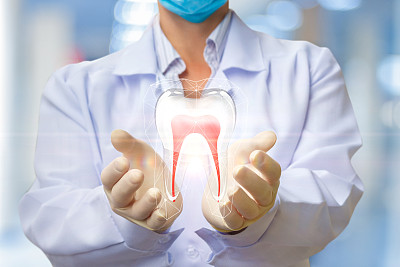Summary: Dental fillings are essential procedures that help restore the functionality and aesthetics of the teeth. This article provides a comprehensive guide on essential guidelines to follow before and after receiving dental fillings. By adhering to these guidelines, patients can enhance the effectiveness of the procedure and ensure long-lasting oral health. The article explores the importance of understanding the dental filling procedure, proper preparations, recommended post-treatment care, and the necessity of regular dental check-ups. Following these guidelines can lead to optimal results and prevent complications associated with dental work.
1. Understanding the Dental Filling Procedure

Before undergoing a dental filling, it is crucial to understand what the procedure entails. Dental fillings are designed to restore teeth that have been damaged by decay, chipping, or wear. The dentist will remove any decayed material and clean the affected area before filling it with a suitable material, such as amalgam, composite, or porcelain.
Being well-informed about the procedure will help alleviate any anxiety associated with dental visits. Ask your dentist about what materials are being used, the duration of the procedure, and any pain management options available. Understanding the procedure can build confidence and trust between patients and dental professionals.
Additionally, knowing the benefits of receiving a dental filling can motivate patients to take timely action. Fillings not only restore functionality but also prevent further decay and infections that can lead to more extensive treatments in the future.
2. Proper Preparations Before Dental Filling
Proper preparation is essential for achieving the best outcome from dental fillings. Before your appointment, make sure to communicate any allergies or medical conditions to your dentist. This information is critical in avoiding complications during and after the procedure.
Another key preparation step is maintaining good oral hygiene leading up to the appointment. Brush and floss your teeth regularly to minimize the presence of bacteria in your mouth. This can help reduce the risk of further decay and ensure that the dentist can work efficiently.
In addition, consider eating a light meal before your appointment, unless instructed otherwise. Having a full stomach can make you feel more comfortable during the procedure. However, avoid consuming food or beverages that may irritate your teeth, such as very hot or cold items.
3. Recommended Post-Treatment Care for Dental Fillings
After receiving a dental filling, it’s imperative to follow recommended care guidelines to promote healing and longevity of the filling. For the first few hours post-treatment, be cautious about eating or drinking. It’s advisable to give your mouth some time to recover from the numbness caused by anesthesia.
When you do resume eating, choose soft foods that won’t put too much pressure on the filled tooth. Avoid sticky or hard foods that can dislodge the filling or cause discomfort. The first few days post-treatment may involve some sensitivity; managing discomfort with over-the-counter pain relievers can be beneficial.
Regularly rinsing your mouth with warm salt water can also aid in reducing any inflammation and prevent infection. Following these post-treatment care tips can significantly enhance the durability of your dental filling and maintain optimal oral health.
4. Importance of Regular Dental Check-Ups
Following dental fillings, it’s essential to maintain regular appointments with your dentist. These check-ups allow for monitoring the condition of the filling and your overall oral health. Dentists can identify potential issues before they turn into significant problems, ensuring the longevity of the filling.
Many practitioners recommend visiting the dentist at least twice a year for routine cleanings and examinations. These check-ups allow for professional cleaning, which can help in preventing cavities around existing fillings and other dental issues.
Furthermore, during these visits, your dentist can provide tailored advice on maintaining oral hygiene practices at home. This could include personalized brushing techniques or suggestions for specific dental products designed for your needs. Staying proactive about your dental health can lead to long-term benefits, including healthier teeth and gums.
Summary:
In conclusion, following the essential guidelines before and after dental fillings can maximize the effectiveness of the procedure and promote lasting oral health. Understanding the filling procedure, preparing adequately, providing proper post-treatment care, and committing to regular dental check-ups are all critical components in maintaining optimal dental health.
This article is compiled by Vickong Dental and the content is for reference only.
Vickong Dental
Vickong Dental is a large medical group established in Hong Kong in 2008 by professors from well-known medical universities in Guangdong and Hong Kong, as well as medical doctors from key national '985' universities (including Master's supervisors and senior professors). The chain of branches brings together expert dentists with PhDs and Master's degrees from Hong Kong and Mainland China, committed to providing high-quality dental treatment.
"Vickong Dental Practices the University Motto of 'Healing and Serving Society,' with a Stable Operation for Sixteen Years. It Has Been honored with Hong Kong Enterprise Leaders's Choice,' and is a Global Trusted Implant Center for the Nobel Implant System. Recommended by Hong Kong Metro Broadcast and Guangdong Television, it Serves Customers from Over Thirty Countries and Regions, Gaining the Trust and Favor of Citizens from the Guangdong-Hong Kong-Macau Greater Bay Area and Surrounding Cities.

Thousands of customers' unanimous praise
The most recognized and highly recommended dental service by customers in the Guangdong-Hong Kong-Macau Greater Bay Area
We Ensure You Receive Detailed Care and Attention Here
Hong Kong standards, Shenzhen prices, Your Trusted English-speaking dentists

Vickong Dental Medical-Grade Instrument Disinfection Process
Vickong Dental Medical-Grade Instrument Disinfection Process

Vickong Dental Chain: A Warm and Comfortable Environment for Treatment






Appointment Hours

Q&A
Why choose Vickong Dental?
Vickong Dental practices the university motto 「Medicine to Benefit Society」, with each branch bringing together highly qualified dentists with doctoral and master’s degrees from Hong Kong and the Mainland, and has maintained seventeen years of steady operation。Recipient of 「2024 Hong Kong Enterprise Leaders Brand」, 「2025 Hong Kong Enterprise Leaders Brand」, a Nobel Biocare Global Trusted Implant Center, and a brand recommended by Metro Radio Hong Kong and Guangdong TV。
To date, we have served customers from more than thirty countries and regions,earning exceptionally high word-of-mouth recognition and trusted recommendations from residents across the Guangdong-Hong Kong-Macao Greater Bay Area and surrounding cities
We have eight major branches in Zhuhai、Shenzhen,and a consultation and service assurance center in Hong Kong,so you can book a free consultation at any time for any questions,which is very reassuring.
If I do not accept the quotation after the CT scan, will I be charged??
No! As long as the actual treatment has not started, you will not be charged any fees.
Will there be any additional charges during the treatment process?
No, there won’t be any additional charges. Before treatment begins, we will clearly explain the treatment plan and its corresponding fees. Only after the patient agrees and signs the consent form will we proceed with the dental service.
Can I pay in Hong Kong dollars?
Yes. Vickong Dental accepts payment in Hong Kong dollars. The amount will be converted based on the exchange rate of the day, and the applicable rate will be clearly communicated to you in advance.
Can I reschedule my appointment at any time?
Yes. Please contact us via **WeChat** or **WhatsApp** as early as possible, providing your original appointment time and details, along with your preferred new date and time slot for rescheduling.













